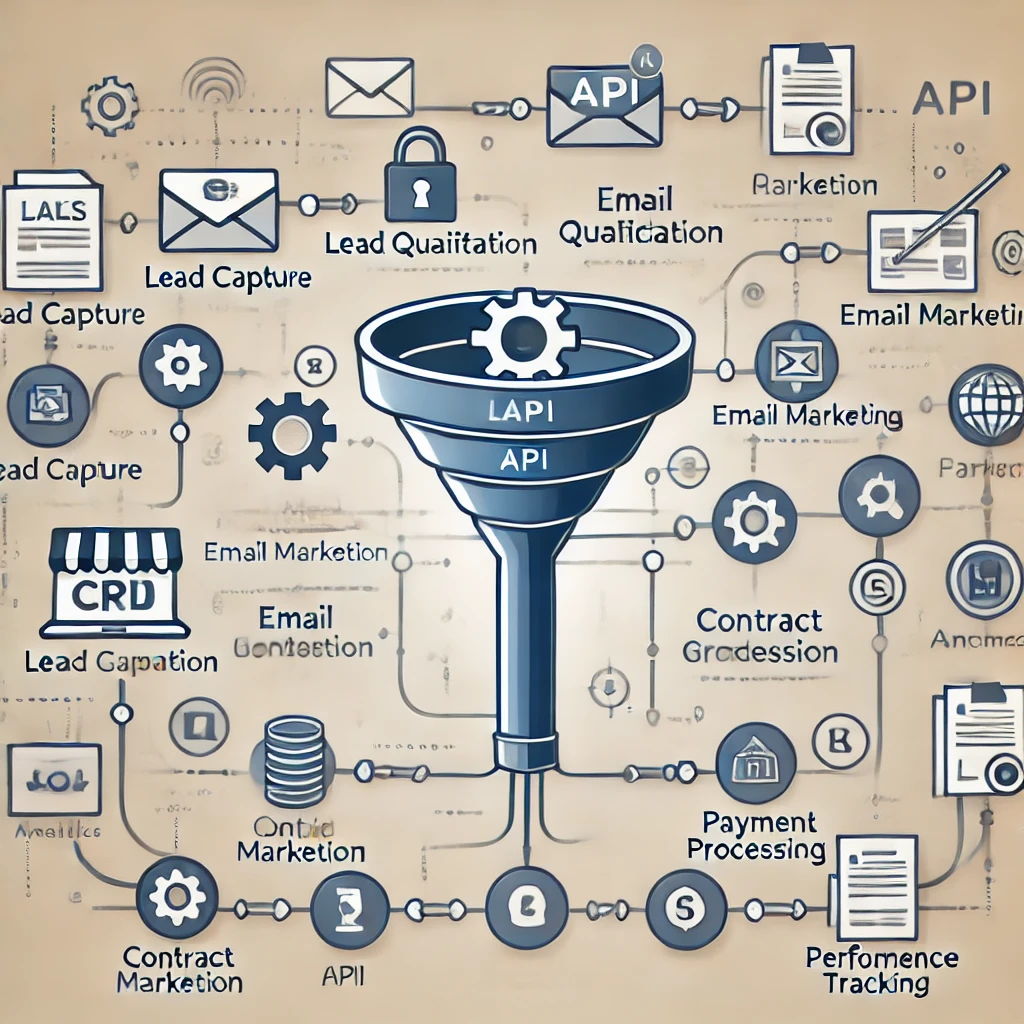Sales funnel automation is transforming the way businesses attract, engage, and convert leads into loyal customers. By integrating API-driven automation into your sales funnel, you can streamline every step of the customer journey, from capturing leads to nurturing them through conversion and beyond. Leveraging APIs for sales funnel automation empowers you to reach potential customers at the right time, with the right message, ensuring a seamless, efficient experience that can greatly enhance conversion rates.
In this post, we’ll dive into the best API integration ideas to boost your sales funnel automation. Get ready to explore practical solutions that save time, optimize engagement, and ultimately scale your sales success.
If you’re eager to explore powerful API automation strategies that can help grow your business faster, we have the perfect resource for you. API automation can streamline workflows, save valuable time, and enhance productivity by connecting your tools and systems seamlessly. Whether you’re looking to optimize sales processes, improve customer engagement, or drive project efficiency, leveraging API integration is key to taking your business to the next level. Dive into our comprehensive blog for actionable insights and innovative strategies to supercharge your business: Check it out here.
Table of Contents
Capture Leads Instantly with CRM Integration APIs
Sales funnel automation through API-powered CRM integrations is one of the most effective ways to automate the top of your sales funnel. When a new lead enters your system, an API integration can automatically record their details in your CRM, saving you the effort of manual data entry and ensuring no leads slip through the cracks.
Benefits of CRM Integration for Lead Capture
A well-configured CRM API integration allows you to capture contact information, interaction history, and engagement levels. With sales funnel automation, you can instantly categorize leads, tag them based on interest, and assign them to relevant sales reps or marketing campaigns.
Consider using popular CRM platforms like Salesforce or HubSpot, which offer robust APIs to integrate with landing pages, forms, and other lead-capturing tools on your website.
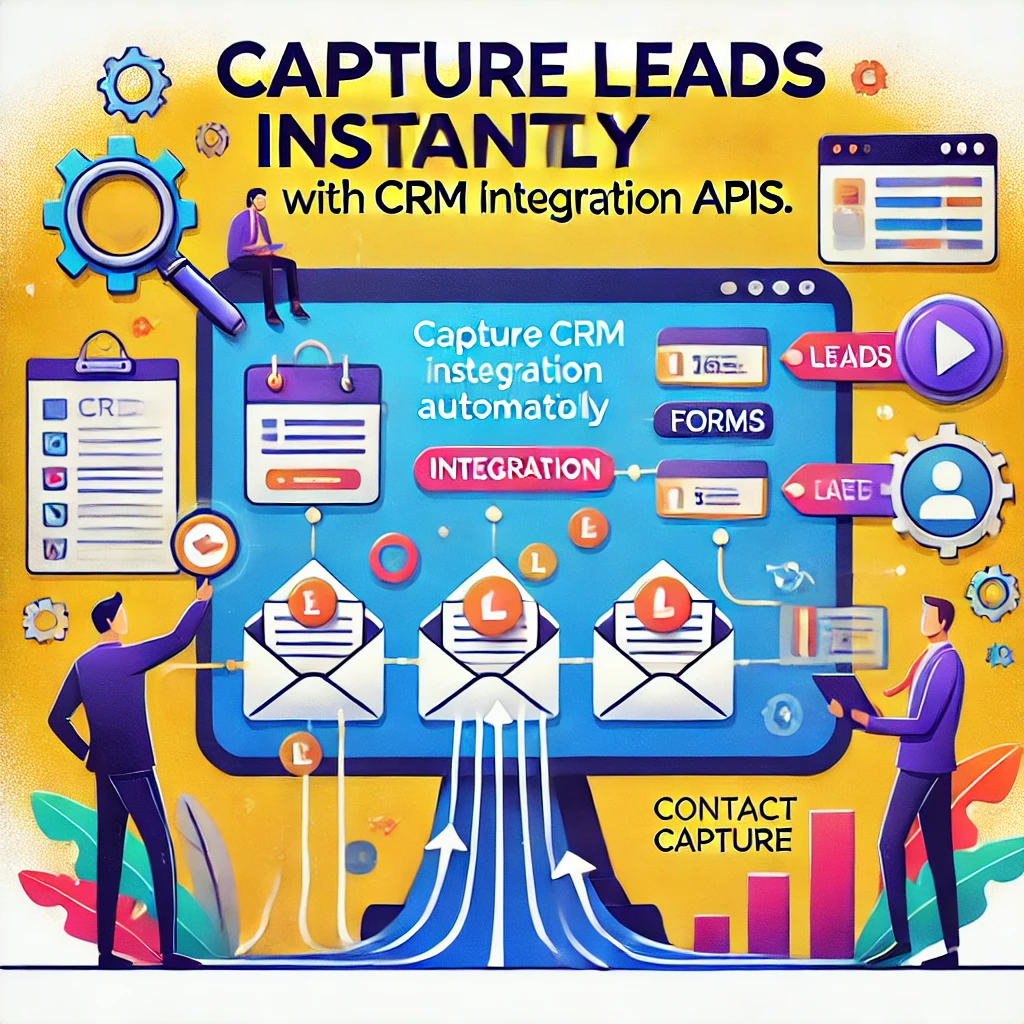
Qualify Leads Automatically with Scoring and Segmentation APIs
Sales funnel automation makes lead qualification a crucial yet simplified step in any sales funnel, with APIs playing a significant role. By using lead scoring and segmentation APIs, you can automatically assess and rank incoming leads based on criteria such as engagement levels, demographics, and online behavior. This automation makes it easier to prioritize high-quality leads and direct them to the appropriate stages of your sales funnel.
How Lead Scoring Automation Boosts Efficiency
Using lead scoring and segmentation APIs, like those provided by Clearbit or MadKudu, allows you to dynamically assign scores to leads based on real-time data. With automated sales funnel segmentation, you can separate cold, warm, and hot leads, allowing sales teams to focus on those more likely to convert.
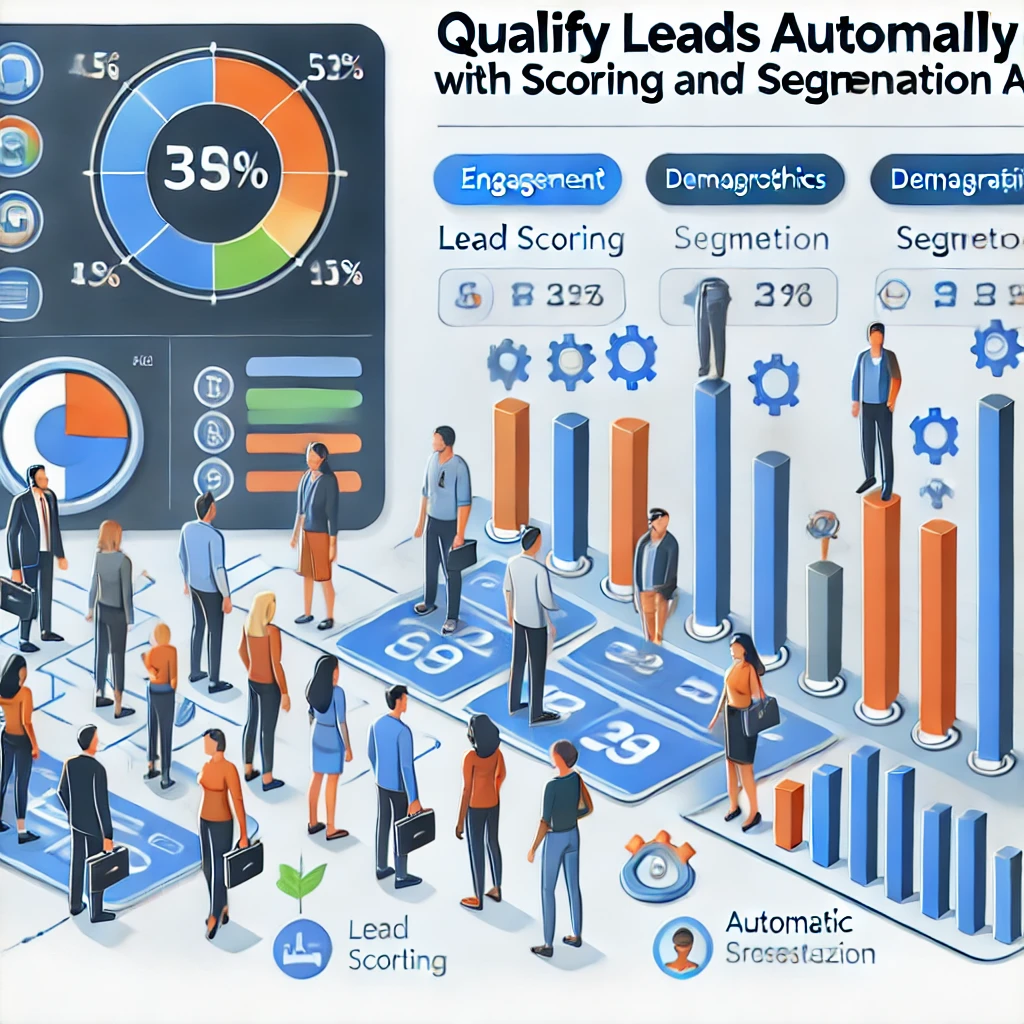
Enhance Customer Engagement with Email Marketing Automation APIs
Email marketing automation is a cornerstone of effective lead nurturing within your sales funnel, enabling you to maintain consistent engagement with potential customers as they progress through each stage. By integrating an API with your email marketing platform, you unlock the power to automate personalized follow-ups, deliver timely messages, and segment communications based on specific user behaviors—all of which are crucial for moving leads closer to conversion.
With API-driven automation, you can set up triggers that respond dynamically to user actions, such as signing up for a newsletter, downloading a resource, or attending a webinar. For example, if a lead downloads an e-book, the API can automatically enroll them into a drip email sequence tailored to that topic, providing additional resources or insights that align with their interests. This level of personalization makes each lead feel valued and keeps them engaged with relevant content, increasing the likelihood of conversion.
Furthermore, sales funnel automation enables precise segmentation within your email campaigns through APIs. By categorizing leads based on behavior, demographics, or interaction history, you can ensure that each group receives content that resonates with their specific needs or stage in the buying process. A lead showing high engagement might receive more direct sales-focused emails, while a colder lead might benefit from educational content that builds trust and interest. This targeted approach is not only efficient but also enhances the user experience, as each communication feels personalized and intentional.
API-integrated email automation also allows for real-time updates, ensuring that your campaigns remain responsive to evolving user interests. If a lead moves from one segment to another, such as expressing a new interest or displaying higher engagement, your API can instantly adjust their communication path to match. This agility within your sales funnel keeps your interactions relevant and timely, which is essential for maintaining a competitive edge.
In short, connecting your email marketing platform through APIs empowers you to nurture leads with precision and relevance, creating sales funnel automation that guides them naturally toward conversion. By automating these touchpoints, you establish an efficient, high-touch experience that feels personalized and responsive without requiring constant manual oversight. This approach to sales funnel automation allows for a streamlined and impactful lead-nurturing process that drives better results.
The Power of API-Driven Email Automation
Email platforms like Mailchimp and ActiveCampaign provide APIs to automate trigger-based campaigns, segment users based on interaction, and even adjust messaging depending on where the lead is within the funnel. This keeps leads engaged without manual intervention, allowing for consistent, tailored interactions.
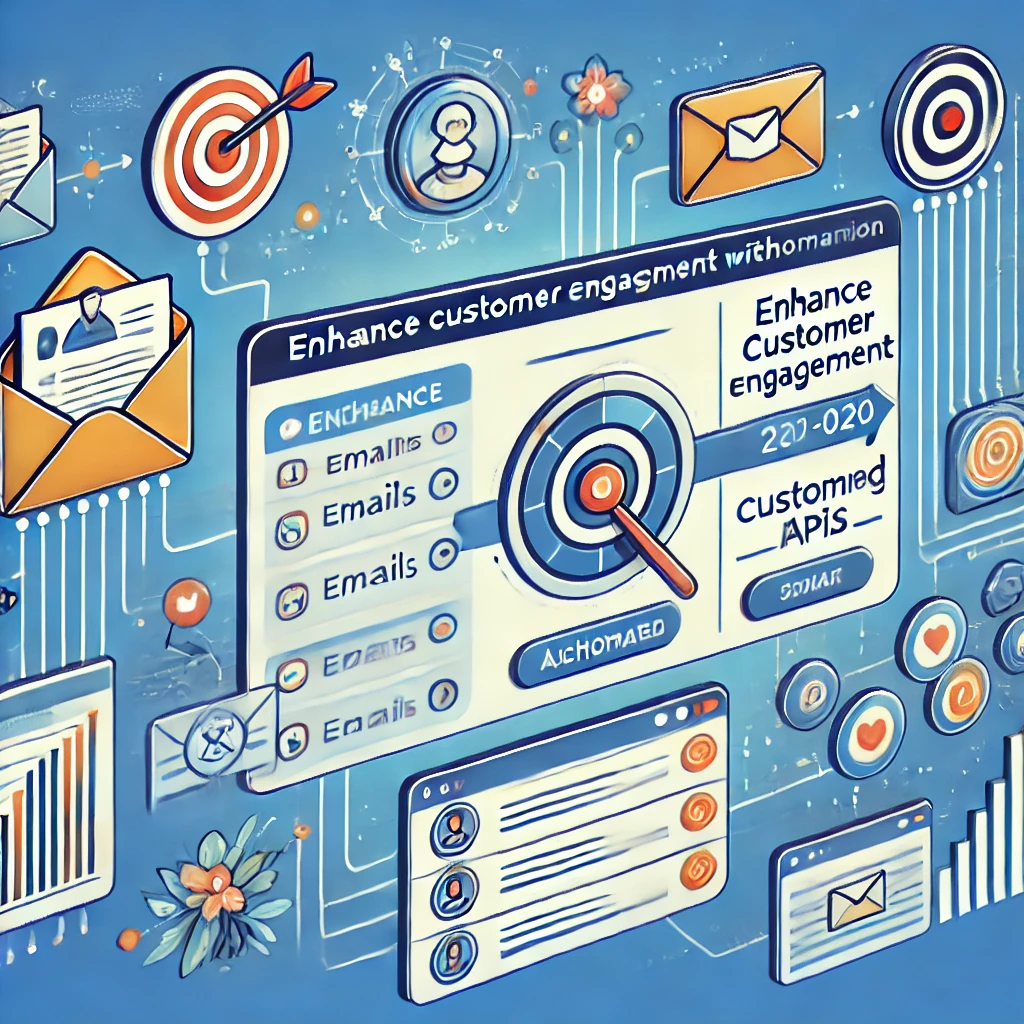
Streamline Data Flow Between Tools with Middleware APIs
Middleware solutions, like Zapier and Integromat (now known as Make), are powerful tools that allow businesses to connect various applications and create seamless workflows across their entire sales funnel. These platforms offer APIs that act as bridges between different software systems, enabling them to communicate and work together effortlessly. By leveraging middleware APIs, businesses can automate routine tasks, keeping data consistent and up-to-date across all systems, which ultimately reduces human error and enhances operational efficiency.
Middleware APIs are especially valuable for sales funnel automation, as they allow each stage of the funnel—lead capture, qualification, engagement, and conversion—to operate as a unified system. For instance, a middleware solution can automatically sync data from a lead capture form on your website to your CRM, email marketing platform, and analytics dashboard. This way, when a new lead enters your funnel, their information is instantly accessible across all relevant platforms without any manual data entry.
In addition to data synchronization, middleware APIs allow you to set up custom workflows that automate complex multi-step processes, such as lead nurturing campaigns, follow-up emails, and task assignments. These workflows are customizable, meaning you can define specific triggers and actions that best fit your sales funnel needs. For example, when a lead completes a specific action, like attending a webinar, a middleware API can trigger a personalized email follow-up, update their lead score, and notify the sales team—all automatically.
By integrating middleware solutions, businesses create a more cohesive, responsive sales funnel that can adapt to customer interactions in real time. Not only does this improve data accuracy, but it also allows team members to focus on higher-level tasks, knowing that routine operations are handled seamlessly in the background. Middleware APIs effectively eliminate information silos, ensuring that your sales funnel runs efficiently and provides a consistent, high-quality experience at every touchpoint.
Advantages of Middleware Integration in Sales Funnel Automation
Middleware APIs help bridge gaps between platforms, allowing you to synchronize CRM data with email marketing systems, connect lead forms with social media ads, and integrate customer support tools. With middleware, your sales funnel automation transforms into a unified, connected system that operates without friction, enabling seamless data flow and coordination across all stages of the funnel. This integration enhances the efficiency and responsiveness of your sales funnel automation, ensuring each tool works harmoniously to drive better engagement and conversions.
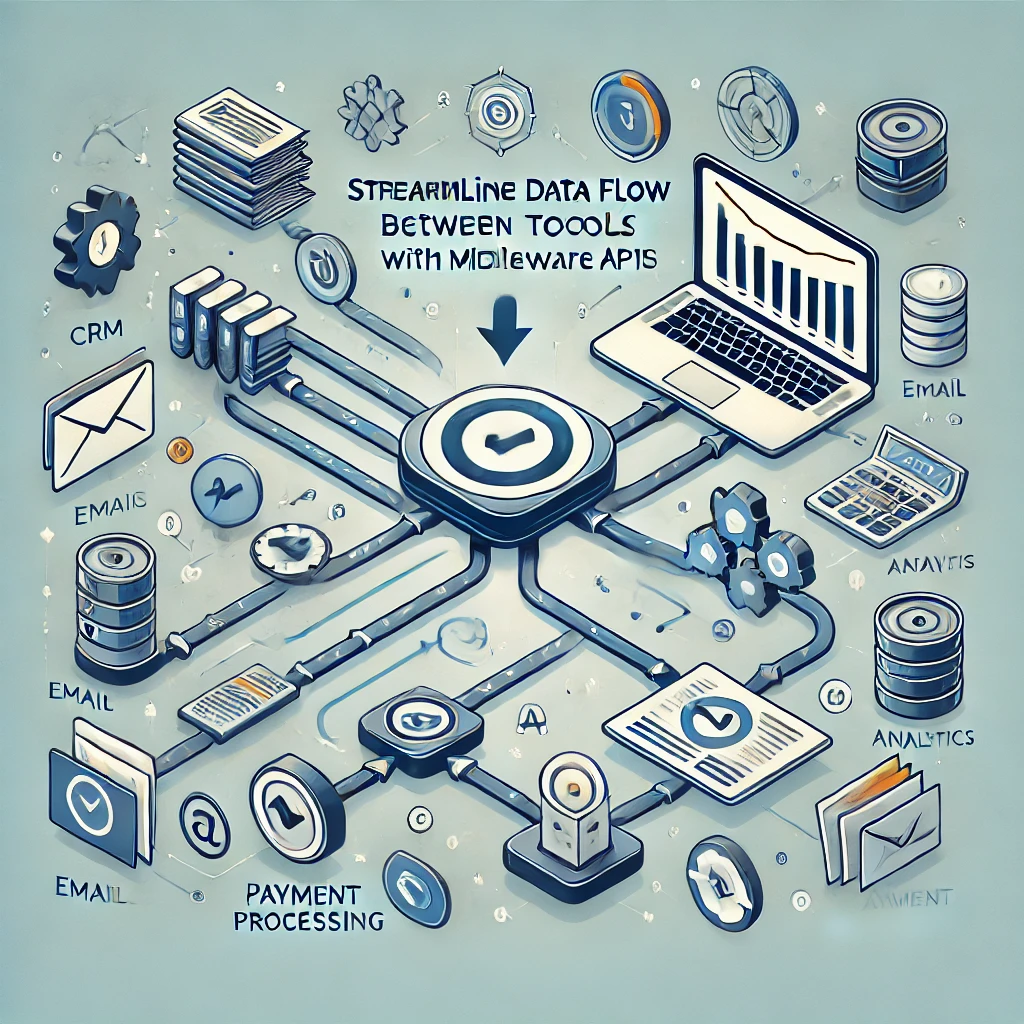
Close Sales Faster with Automated Proposal and Contract Generation APIs
Closing deals quickly and efficiently is a top priority in any sales process, and leveraging APIs for proposal and contract generation can greatly accelerate this final stage. By automating document generation, platforms like PandaDoc and DocuSign make it easy to create, customize, and distribute contracts, proposals, and quotes without delay. These APIs handle all stages of document management—from initial generation to secure electronic signatures and final storage—streamlining the closing process and reducing time-consuming manual work.
With automated proposal generation, sales teams can quickly create professional, consistent documents tailored to each client’s unique needs—all at the click of a button. Through sales funnel automation, APIs allow for easy customization of pricing, terms, and project details, ensuring every proposal is both accurate and relevant. Once generated, these documents are ready for immediate signature, with e-signature APIs eliminating the need for printing, scanning, or mailing. Clients can review and sign from any device, making the process faster, more convenient, and highly efficient.
The automation provided by proposal and contract generation APIs not only speeds up the sales funnel’s closing stage but also enhances the client experience by removing barriers to a smooth transaction. These APIs provide real-time status tracking as well, allowing sales teams to follow up promptly if a document hasn’t been signed, keeping the process efficient and ensuring no deal falls through the cracks. Ultimately, incorporating these tools into your workflow helps you close deals faster, improves accuracy, and ensures every interaction is professional and streamlined, building trust and paving the way for future business.
Efficient Contract Automation for a Seamless Closing Process
APIs enable you to send personalized contracts automatically, track their status, and notify sales reps when documents are signed. This makes closing deals faster, eliminating delays and ensuring a smoother experience for potential clients in the final stage of the sales funnel.
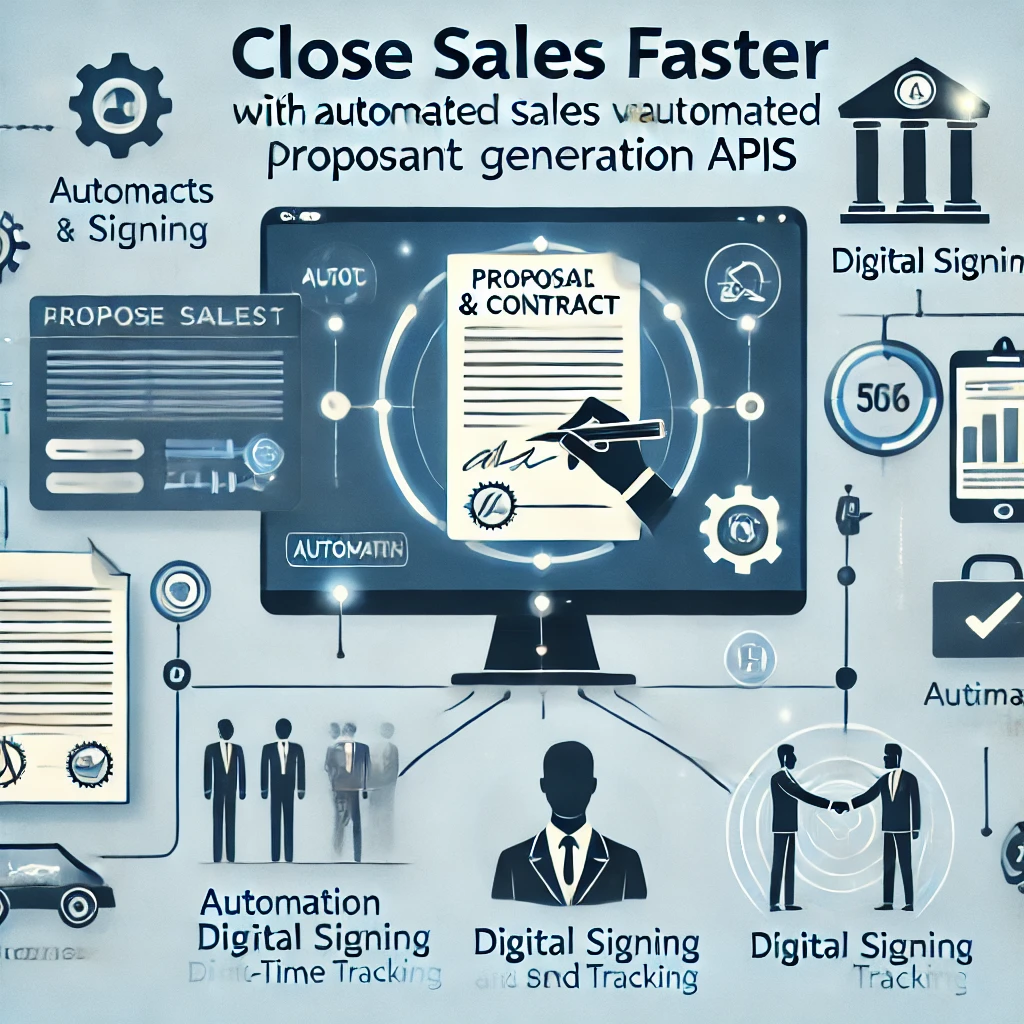
Leverage Payment Processing APIs for Seamless Transactions
Integrating payment processing APIs is essential for converting leads effectively at the bottom of the sales funnel. These APIs enable a seamless and secure payment experience, reducing friction and helping close deals faster. By connecting trusted payment platforms like Stripe or PayPal to your sales funnel, you can automate critical tasks such as invoicing, payment collection, and even follow-up reminders for incomplete or pending transactions.
With automated invoicing, payment requests are instantly generated and sent to customers as soon as they’re ready to purchase, ensuring a smooth and efficient transaction process. Payment APIs further enhance sales funnel automation by enabling automated reminders, reducing abandoned transactions by gently prompting customers who may have hesitated or forgotten to complete their payments. This streamlined process saves time, lowers the risk of human error, and significantly enhances the customer experience by making payments straightforward and hassle-free.
Integrating payment processing APIs at this stage solidifies the customer’s journey, creating a reliable and trustworthy closing experience that reinforces customer satisfaction and increases the likelihood of repeat business.
The Role of Payment APIs in Sales Funnel Automation
Payment processing APIs reduce friction in the purchasing process, providing customers with a streamlined experience. Automating this step keeps your sales funnel moving, reduces manual workload, and enhances customer satisfaction by offering a quick, secure payment method.
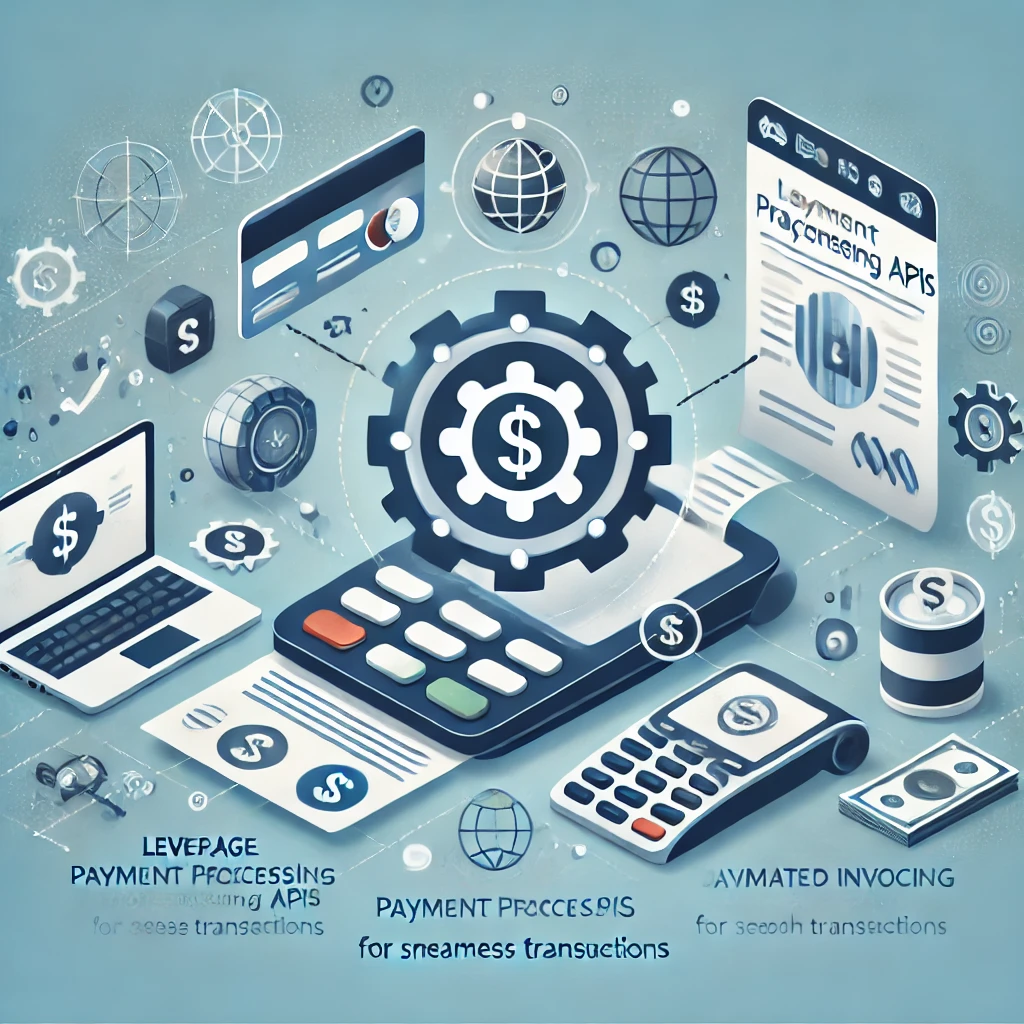
Track Sales Funnel Performance with Analytics and Reporting APIs
Effective sales funnel automation includes constant monitoring to refine and improve each step. Using analytics APIs, like those from Google Analytics or Mixpanel, you can automate the tracking of user engagement, conversion rates, and other key performance indicators.
Using Analytics to Refine Your Sales Funnel
With analytics APIs, you gain real-time insights into how users navigate through your sales funnel, enabling you to spot bottlenecks and uncover opportunities for improvement. This continuous feedback loop allows for data-driven adjustments, making your sales funnel automation more efficient and successful. By responding promptly to insights from analytics, you can optimize each stage of the funnel, enhancing the overall user experience and increasing conversion rates.
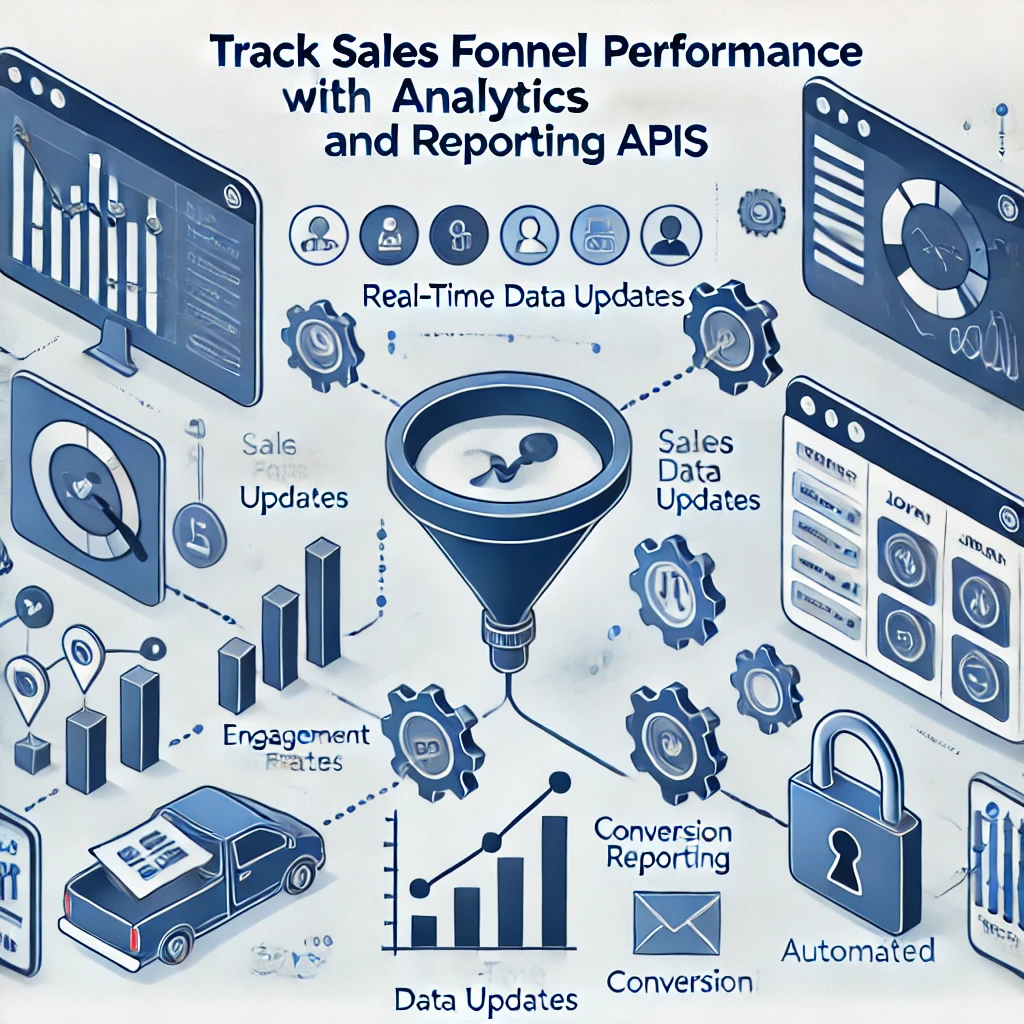
Conclusion
Automating your sales funnel with API integrations truly transforms the way you manage and grow your business, making the entire process more efficient and results-driven. By incorporating sales funnel automation through CRM integration, email marketing automation, middleware, and analytics APIs, you gain the freedom to focus on strategic planning and strengthening relationships with clients, instead of spending time on repetitive manual tasks.
With sales funnel automation, each stage of your funnel—from lead capture and qualification to engagement and conversion tracking—operates seamlessly, reducing errors and optimizing engagement. This level of automation not only boosts operational efficiency but also significantly increases the likelihood of conversion, as every interaction is timely, relevant, and personalized. Ultimately, leveraging API integrations throughout the sales funnel can be a powerful way to unlock higher conversion rates and achieve more scalable, sustainable business growth.

